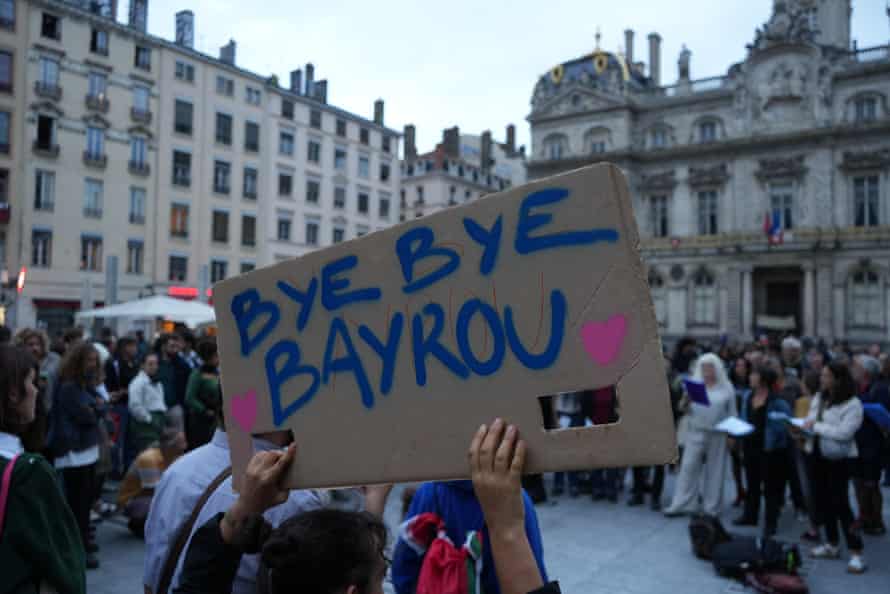France has been plunged into fresh political turmoil after Prime Minister François Bayrou resigned following a heavy defeat in a parliamentary confidence vote.
President Emmanuel Macron confirmed he would appoint a new prime minister in the coming days, who will then be tasked with forming a government capable of navigating a deeply divided National Assembly. The incoming leader will be the third person to hold the post in a year and will face the immediate challenge of securing agreement on a budget.
Bayrou, 74, a centrist, had been in office for nine months. He was ousted over his unpopular debt-reduction budget, which followed the fate of his predecessor, the rightwing Michel Barnier, who lasted only three months before being removed over similar fiscal disputes.
The confidence vote result prompted celebrations among opponents. Around 11,000 people gathered outside town halls across the country on Monday evening for events dubbed “Bye bye Bayrou” farewell drinks. Many used the gatherings to organise for a nationwide protest on Wednesday under the slogan “Block Everything”. Authorities say 80,000 police officers will be deployed, with demonstrations expected to include roadblocks and the obstruction of fuel depots.
Since Macron’s snap election last year, the National Assembly has been split between left, centre and far-right blocs, with no group holding an outright majority. This has left successive prime ministers vulnerable to removal, as cross-party consensus on key legislation has proved elusive.
Gabriel Attal, a former prime minister and current head of Macron’s centrist grouping, described the situation as an “absolutely distressing spectacle” of instability, with governments falling “every three to six months”. He called for a political compromise between all blocs before a new appointment is made.
Sources close to the president told Agence France-Presse that Macron may favour a trusted figure from his own centrist ranks, such as justice minister Gérald Darmanin or defence minister Sébastien Lecornu, both of whom have backgrounds on the right. However, their perceived rightwing leanings could make them unacceptable to the left.
A pact with the Socialist party has been floated as a possible route to stability. Potential compromise candidates include Bernard Cazeneuve, a former prime minister and ex-Socialist, and finance minister Eric Lombard, a former banking executive and one-time Socialist party member.
The political deadlock leaves Macron facing a difficult choice between appointing a loyalist, seeking a cross-party figure, or risking further instability with another short-lived administration.



